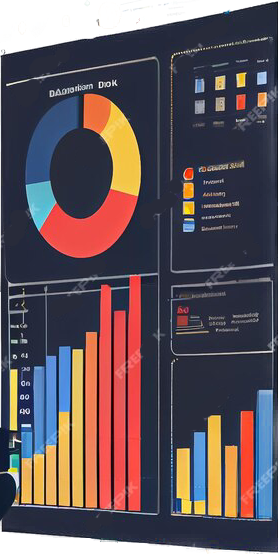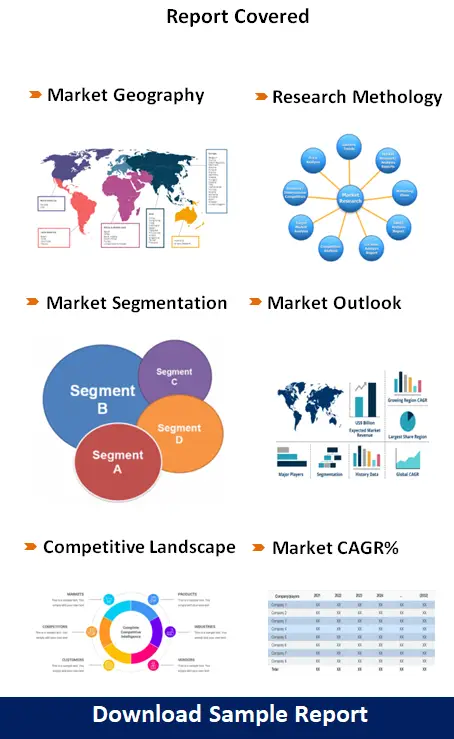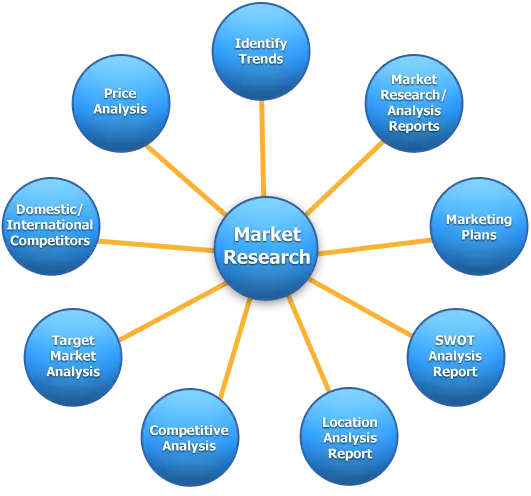Cellulose Fuel Ethanol Market Growth CAGR Overview
According to research by Infinitive Data Research, the global Cellulose Fuel Ethanol Market size was valued at USD 2.8 Bln (billion) in 2024 and is Calculated to reach USD 3.6 Bln (billion) by the end of 2032, growing at an anticipated compound annual growth rate (CAGR) of 9.3% during the forecast period 2024 to 2032. This projected growth is driven by its increasing adoption across Chemical & Materials industries such as Automotiove Fuel, Other FuelThe cellulose fuel ethanol market has seen substantial growth due to increasing environmental concerns and an active pursuit of sustainable energy solutions. With the growing global emphasis on reducing fossil fuel dependence, cellulose-derived ethanol is positioned as an attractive renewable energy alternative. Efforts to utilize agricultural and forestry waste in ethanol production have resulted in both environmental benefits and economic opportunities, making this segment a critical component of the clean energy transition. As policies increasingly favor renewable fuels, the market dynamics are set to experience sustained expansion driven by innovation and improved processing techniques.
Technological advancements in enzyme engineering, fermentation processes, and pretreatment methods have significantly enhanced the efficiency of cellulose conversion into ethanol. Companies operating in this space are investing heavily in R&D to lower production costs and improve yield efficiency. These innovations have not only helped in overcoming the traditional technical barriers associated with cellulosic ethanol production but have also paved the way for more competitive market structures. Increased collaboration between research institutions and industry leaders is fostering a continuous cycle of improvement, which in turn is augmenting the overall market potential.
The market is further driven by robust government support in the form of subsidies, tax incentives, and research grants that are aimed at promoting renewable energy solutions. Energy policies in major economies favor biofuels over fossil-based alternatives, thereby creating a favorable regulatory framework for the expansion of cellulose fuel ethanol. The improved legislative environment, along with the rising cost of conventional energy sources, has accelerated investments in biofuel plants and processing facilities. As production methods improve and economies of scale are achieved, the market is expected to undergo transformative growth, drawing attention from investors globally.
In addition to technological and policy drivers, consumer awareness regarding the environmental impact of energy consumption plays a crucial role in this market. There is a growing preference for cleaner energy options among both private and public entities, which further enhances the market outlook. The emphasis on carbon footprint reduction and sustainable development in various sectors, including transportation and industrial applications, is boosting the demand for cellulose fuel ethanol. Continuous improvements in technology, paired with an evolving regulatory landscape, are expected to drive the market toward increased adoption and sustained growth over the coming years.
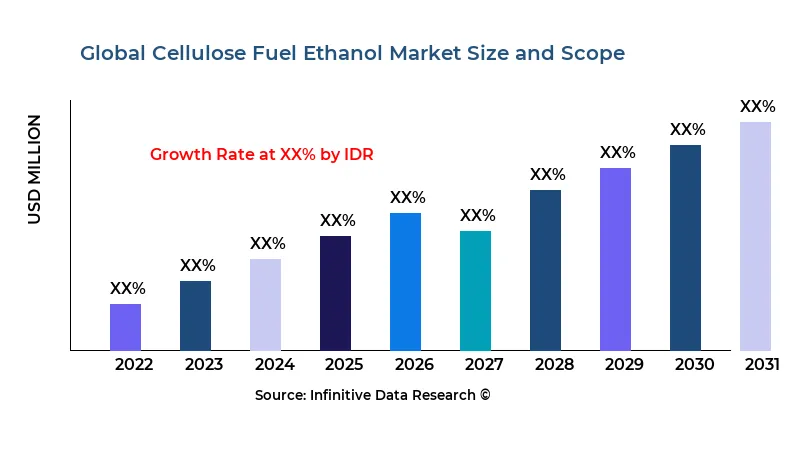
>>> Understand The Key Trends Shaping This Market:- Download PDF Sample
Cellulose Fuel Ethanol Market Growth Factors
One of the foremost factors fueling the growth of the cellulose fuel ethanol market is the increased demand for sustainable and renewable energy sources globally. Driven by the need to reduce greenhouse gas emissions, investments in alternative fuels have surged, and cellulose ethanol has emerged as a promising option. The extensive availability of biomass feedstock, including agricultural residues and forestry by-products, coupled with technological advancements in conversion processes, has enabled the production of ethanol at competitive costs. This combination of supply-side strength and technological progress is prompting wider market acceptance and robust growth projections.
Global energy security concerns and volatile fossil fuel prices have compelled governments to diversify energy portfolios by integrating renewable sources. In many cases, strategic long-term initiatives and environmental policies have created attractive incentives for the biofuel industry. This regulatory push is complemented by the increasing consumer and industrial demand for cleaner fuels, which further enhances the market momentum. As a result, technological breakthroughs in biochemical processing and improved energy efficiency are playing a pivotal role in reducing the overall production cost of cellulose ethanol, making it a viable alternative in many economies around the world.
Another critical growth determinant is the formation of strategic partnerships across the supply chain, encompassing feedstock suppliers, technology providers, and distribution networks. These collaborations are aimed at optimizing production efficiencies and ensuring a steady supply of biomass. By integrating operations vertically, companies are better equipped to manage costs, reduce waste, and achieve economies of scale. This integrated approach not only bolsters the competitive stance of cellulose fuel ethanol producers but also underpins the long-term sustainability of the industry. As market players enhance collaboration, the resulting synergies are expected to accelerate industry growth and foster greater penetration into traditional fuel markets.
Furthermore, the expanding research and development initiatives across various geographies have led to the continuous improvement of production technologies. Investments in enzyme development, fermentation optimizations, and biomass pretreatment methods are crucial factors enhancing product efficiency and lowering production thresholds. The cumulative effect of these technological advancements is a more robust and sustainable production process that can compete with conventional fuels on both cost and performance parameters. This blend of technology, policy support, and strategic industry partnerships is driving significant market expansion and positioning cellulose fuel ethanol as a key player in the future energy landscape.
Market Analysis By Competitors
- DuPont
- Abengoa
- POET-DSM
- GranBio
- Beta Renewables
- Longlive
- Iogen Corporation
- Diversa Corporation
By Product Type
- Cellulolysis (biological approach)
- Gasification process
By Application
- Automotiove Fuel
- Other Fuel
>>> Understand The Key Trends Shaping This Market:- Understand The Key Trends Shaping This Market:-
Cellulose Fuel Ethanol Market Segment Analysis
Distribution Channel:
The distribution channel for cellulose fuel ethanol is a complex network that spans direct supply contracts with large-scale biofuel producers, independent fuel distributors, and partnerships with national energy companies. The logistics play a vital role in bridging regional production facilities with local and international demand centers. Robust supply chain management and strategic warehousing practices ensure consistent product availability, while regional refinements in distribution networks help in addressing varying regulatory and infrastructural challenges. Investments in digital supply chain systems and dedicated transport solutions further contribute to maintaining steady and reliable delivery, which is essential for meeting the energy requirements of diverse markets.
Compatibility:
In the cellulose fuel ethanol market, product compatibility extends to the integration of cellulosic ethanol with current engine technologies and energy storage systems. Ethanol producers are focusing on ensuring that their products can be easily blended with traditional fuels without compromising engine performance or increasing emissions beyond regulatory limits. This compatibility drives the adoption of ethanol by transport and industrial sectors, as vehicles and machinery are increasingly being designed or adapted to make efficient use of renewable biofuels. Manufacturers work closely with automotive and energy technology firms to ensure that cellulosic ethanol is a drop-in fuel option that enables a smoother transition from fossil fuels to renewable energy sources.
Price:
Pricing in the cellulose fuel ethanol industry is influenced by a range of factors including raw material costs, technological innovation, and government subsidies. Producers often engage in cost-optimization strategies that balance the need for high-quality feedstock processing with competitive pricing structures that appeal to energy buyers. With economies of scale gradually being realized, many companies are able to offer their products at competitive rates, making cellulose fuel ethanol a financially viable alternative to fossil fuels. Furthermore, dynamic pricing models allow producers to remain flexible in the face of fluctuating market conditions and feedstock availability, ensuring that prices are aligned with evolving market realities while encouraging long-term contracts with major energy consumers.
Product Type:
The product types within the cellulose fuel ethanol market reflect a diverse range of technological approaches and applications. This diversity is evident in the various grades of ethanol produced—ranging from high-purity fuel for industrial applications to blends designed for use in conventional engines. Manufacturers are continually refining their products through the incorporation of novel enzymes and improved fermentation processes that enhance yield and purity. The segmentation by product type also allows producers to tailor their offerings to different market needs, from lower-grade fuels used in industrial boilers to advanced biofuels that meet stringent specifications for automotive use. This product diversification not only enhances consumer choice but also enables companies to capture a broader share of the growing renewable energy market.
| REPORT ATTRIBUTES | DETAILS |
|---|---|
| Study Period |
2019-2032 |
| Base Year |
2023 |
| Forecast Period |
2024-2032 |
| Historical Period |
2019-2022 |
| Unit |
Value (USD Billion) |
| Key Companies Profiled |
DuPont, Abengoa, POET-DSM, GranBio, Beta Renewables, Longlive, Iogen Corporation, Diversa Corporation |
| Segments Covered |
By Product |
| Customization Scope |
Free report customization (equivalent to up to 3 analyst working days) with purchase. Addition or alteration to country, regional and segment scope |
>>> Overview of Market Analysis:- Download PDF Sample
Cellulose Fuel Ethanol Market Regional Analysis
In North America, cellulose fuel ethanol has seen a robust increase, thanks largely to favorable government incentives and the availability of ample agricultural residues that serve as feedstock. Large-scale biofuel projects and research collaborations have enabled the industry to optimize production processes and reduce costs, further enhancing market competitiveness. The extensive network of distribution channels and strong regulatory support have also played a significant role in market penetration, ensuring that technological breakthroughs are quickly translated into commercial success. This dynamic market environment has positioned North America as a leader in the innovation and implementation of sustainable energy solutions.
Europe’s market for cellulose fuel ethanol is characterized by stringent environmental policies and a strong commitment to renewable energy targets. European Union directives and national strategies have provided a robust framework that encourages the development and adoption of biofuel technologies. With a focus on reducing greenhouse gas emissions, European governments offer generous support through financial incentives, research grants, and favorable regulation. This supportive environment has spurred the development of advanced conversion technologies and a diversified production landscape, making Europe a highly competitive and rapidly evolving market in the renewable energy sector.
In the Asia-Pacific region, rapid industrialization and growing energy demands are stimulating significant interest in sustainable energy alternatives. The abundance of biomass resources in countries such as China, India, and Southeast Asian nations has created a favorable environment for the expansion of cellulose fuel ethanol. Regional governments are increasingly focusing on reducing air pollution and carbon emissions by investing in bioenergy projects, while a rapidly developing industrial sector is keen on implementing cleaner production practices. These factors, in conjunction with ongoing improvements in conversion technology, are driving strong market growth and paving the way for increased commercialization of cellulose fuel ethanol throughout the region.
Latin America and emerging economies in Africa are gradually integrating cellulose fuel ethanol into their energy mix as they seek to diversify away from traditional fossil fuels. In these regions, the economic benefits of turning agricultural residues into value-added products are becoming increasingly apparent. Supportive government policies aimed at improving energy security, coupled with favorable climatic and agricultural conditions, are helping to build a robust biofuel industry. As these regions continue to develop economically and invest in modernized production techniques, the market is likely to experience significant growth, ultimately contributing to a more diversified and sustainable global energy portfolio.
global Cellulose Fuel Ethanol market revenue (usd million) comparison by players 2024-2032
| Company/players | 2021 | 2022 | 2023 | 2024 | ... | (2032) |
|---|---|---|---|---|---|---|
| DuPont | XX | XX | XX | XX | XX | XX |
| Abengoa | XX | XX | XX | XX | XX | XX |
| POET-DSM | XX | XX | XX | XX | XX | XX |
| GranBio | XX | XX | XX | XX | XX | XX |
| Beta Renewables | XX | XX | XX | XX | XX | XX |
| Longlive | XX | XX | XX | XX | XX | XX |
| Iogen Corporation | XX | XX | XX | XX | XX | XX |
| Diversa Corporation | XX | XX | XX | XX | XX | XX |
| Total | XX | XX | XX | XX | XX | XX |
global Cellulose Fuel Ethanol market revenue (usd million) comparison by product type 2024-2032
Product Type
2023
2024
...
2032
CAGR%(2024-32)
Cellulolysis (biological approach)
XX
XX
XX
XX
XX
Gasification process
XX
XX
XX
XX
XX
Total
XX
XX
XX
XX
XX
| Product Type | 2023 | 2024 | ... | 2032 | CAGR%(2024-32) |
|---|---|---|---|---|---|
| Cellulolysis (biological approach) | XX | XX | XX | XX | XX |
| Gasification process | XX | XX | XX | XX | XX |
| Total | XX | XX | XX | XX | XX |
global Cellulose Fuel Ethanol market revenue (usd million) comparison by application 2024-2032
Application
2023
2024
...
2032
CAGR%(2024-32)
Automotiove Fuel
XX
XX
XX
XX
XX
Other Fuel
XX
XX
XX
XX
XX
Total
XX
XX
XX
XX
XX
| Application | 2023 | 2024 | ... | 2032 | CAGR%(2024-32) |
|---|---|---|---|---|---|
| Automotiove Fuel | XX | XX | XX | XX | XX |
| Other Fuel | XX | XX | XX | XX | XX |
| Total | XX | XX | XX | XX | XX |
>>> Market Understand Through Graph And Chart:- Download PDF Sample
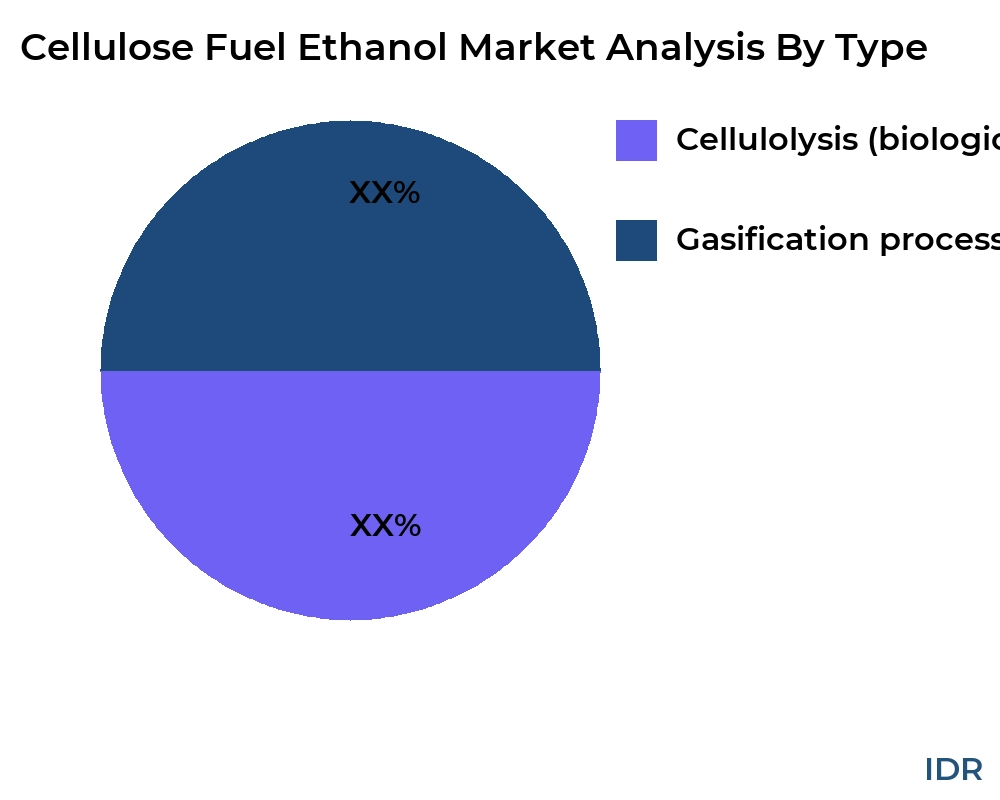
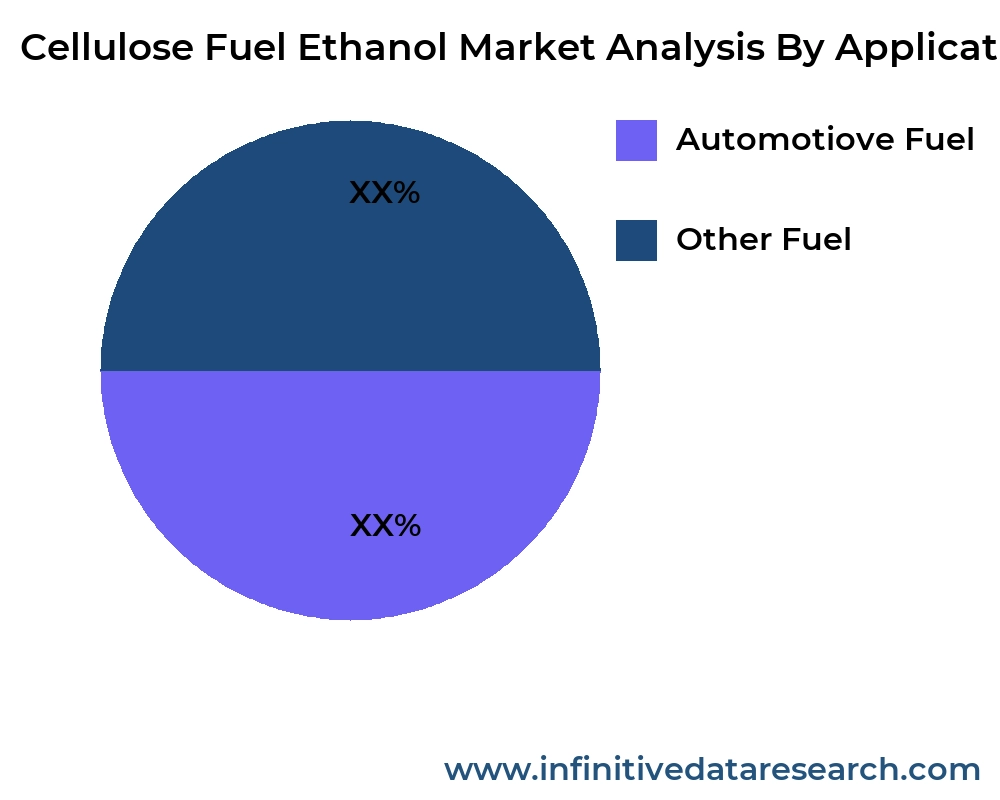
Cellulose Fuel Ethanol Market Competitive Insights
The competitive landscape in the cellulose fuel ethanol market is defined by a mix of established energy giants and nimble, innovation-driven start-ups. Large multinational corporations have leveraged their financial strength, technological expertise, and expansive distribution networks to secure a dominant presence in key regions. Their ability to invest heavily in R&D and benefit from economies of scale has set high barriers to entry for new players. However, smaller companies are also making meaningful inroads through targeted innovations and niche market strategies that address local feedstock availability and regional regulatory environments.
As the market becomes more mature, competitive strategies have evolved to include joint ventures, strategic partnerships, and mergers that allow companies to consolidate resources and share technological advancements. Collaboration between established industry leaders and specialized biotech firms is particularly common, resulting in breakthroughs that enhance production efficiency and product quality. These alliances are critical in driving down costs and improving the overall competitiveness of cellulose fuel ethanol. In this collaborative environment, companies are continuously seeking to harness the latest scientific developments to maintain their competitive edge and enhance market share.
Competition is also marked by an increasing emphasis on sustainability and environmental performance. Companies are focusing not only on increasing production volumes but also on ensuring that their production processes are as green as possible. This environmentally driven approach appeals to an increasingly eco-conscious global market, where corporate sustainability has become a key criterion for success. Firms that successfully balance operational efficiency with low environmental impact are able to command higher levels of customer trust and secure long-term contracts with key buyers. Such an approach reinforces their reputation as leaders in the renewable energy transition, fostering both market stability and growth.
The drive to innovate and differentiate in a crowded market has led to a scenario where technological leadership and customer-centric approaches are paramount. Companies are investing in next-generation bioconversion technologies, process optimizations, and advanced logistics solutions that enhance overall competitiveness. This competitive drive, combined with government support and heightened consumer demand, creates a vibrant market where continuous improvement is the norm. As firms focus on both product innovation and strategic market positioning, the cellulose fuel ethanol segment is poised for accelerated growth and expanded global adoption.
Cellulose Fuel Ethanol Market Competitors
United States:
• EcoEthanol Solutions
• CelluFuel Technologies
• GreenCycle Energy
• RenewBio Fuels
• EcoCell Innovations
Germany:
• BioCell Deutschland
• EthanolTec AG
• GreenFuel GmbH
• CelluEnergetics
• RenewCell Systems
Japan:
• Nihon BioFuel
• CelluTech Japan
• GreenEnergy Solutions Japan
• Renewable Cell Inc.
• EcoEthanol Japan
United Kingdom:
• BritCell Fuels
• GreenRenew UK
• EcoFuel Solutions
• CelluPower Ltd.
• BioEthanol UK
France:
• CelluBio France
• EcoEthanol Innovations
• GreenCell France
• RenewFuel France
• BioRenew Systems
India:
• CelluFuel India
• EcoBio Energy
• GreenCellular India
• Renewable Ethanol India
• BioCell Solutions
Cellulose Fuel Ethanol Market Top competitors
1. EcoEthanol Solutions
EcoEthanol Solutions has quickly emerged as a leading force in the cellulose fuel ethanol market, distinguished by its commitment to sustainable energy production. The company utilizes state-of-the-art bioconversion technologies to transform agricultural waste into high-quality ethanol efficiently. Through continuous research and strategic partnerships, EcoEthanol has reduced production costs while significantly improving process yield. Their innovative approach and robust quality assurance protocols ensure that their ethanol consistently meets stringent environmental standards. With extensive distribution channels in North America and a growing international presence, EcoEthanol Solutions is widely recognized as a dynamic and forward-thinking industry leader. Their progressive vision and strategic investments have solidified their standing as a key contributor to the renewable energy revolution.
2. CelluFuel Technologies
CelluFuel Technologies is renowned for its pioneering research in bio-conversion processes that optimize the transformation of lignocellulosic biomass into renewable ethanol. Their state-of-the-art production facilities are equipped with cutting-edge technologies that improve both yield and cost efficiency. The company has earned a reputation for excellence through continuous innovation and a commitment to environmental sustainability. Strategic collaborations with academic and research institutions have enabled the development of breakthrough processes that reduce waste and lower energy consumption. CelluFuel’s strong market presence in both domestic and international markets is driven by its customer-focused approach and commitment to quality. The company remains a formidable competitor, setting industry benchmarks for efficiency and sustainable production.
3. GreenCycle Energy
GreenCycle Energy is a prominent player in the cellulose fuel ethanol market, recognized for its integrated approach to renewable energy production. The company emphasizes sustainable practices throughout its production chain, from sourcing feedstock to final product delivery. Their advanced fermentation and enzymatic hydrolysis technologies allow for a high conversion rate and cost-effective production of ethanol. GreenCycle Energy has successfully developed strategic alliances with local farmers and technology providers to secure a consistent supply of raw materials. By balancing scalability with innovative process improvements, the company has cemented its position as a reliable supplier in a competitive market. Their focus on innovation and sustainability continues to drive market growth and customer confidence globally.
4. RenewBio Fuels
RenewBio Fuels has established itself as a critical player in the renewable energy sector by focusing on the production of high-grade cellulose fuel ethanol. The company utilizes advanced pretreatment and fermentation techniques that optimize the breakdown of complex biomass. This strategic technological edge has helped them achieve considerable improvements in yield and operational efficiency. RenewBio’s commitment to research, innovation, and continuous improvement is evident in its strong portfolio of proprietary technologies. Their efficient supply chain and robust distribution network support both local and international market demands, while a clear focus on sustainability resonates with environmentally conscious consumers. The company’s growing market share and relentless focus on innovation have positioned it as a significant competitor within the renewable energy landscape.
5. EcoCell Innovations
EcoCell Innovations is characterized by its forward-thinking approach to producing cellulose-based ethanol, leveraging breakthrough technologies to turn waste biomass into a valuable biofuel product. The company’s research and development initiatives are at the heart of its operational strategy, driving continuous improvements in conversion efficiency and product quality. They have successfully integrated innovative enzyme solutions into their production process, significantly reducing the environmental impact. EcoCell Innovations has built a reputation for reliability and sustainability, which is further boosted by their strong emphasis on quality control and customer service. With a diverse portfolio and expanding global reach, the company consistently pushes the boundaries of biofuel technology and remains well-positioned in a competitive market.
6. BioCell Deutschland
BioCell Deutschland is a leading German competitor in the cellulose fuel ethanol market, known for its precision engineering and commitment to sustainable production methods. The company’s state-of-the-art facilities are optimized to process various biomass feedstocks into high-purity ethanol efficiently. BioCell’s emphasis on R&D has enabled it to develop proprietary technologies that elevate both product quality and production efficiency. Their deep industry expertise and robust operational framework have garnered trust among major energy providers and regulatory bodies alike. The strategic integration of advanced conversion methods into their production processes has reinforced their market position. BioCell Deutschland continues to set high benchmarks in innovation and sustainability in the European renewable energy sector.
7. EthanolTec AG
EthanolTec AG stands out in the European market as a technology-driven leader in the production of cellulose fuel ethanol. The company’s focus on state-of-the-art biotechnological processes enables it to convert feedstock with exceptional efficiency. Their well-integrated production lines and rigorous quality control measures ensure a consistent and high-quality biofuel product. EthanolTec AG has formed strategic partnerships with key stakeholders in the energy and agricultural sectors, which have allowed them to maintain a steady supply of raw materials. Their commitment to reducing greenhouse gas emissions while enhancing energy security has positioned them as a critical supplier in the renewable energy market. The company’s continuous emphasis on innovation and process optimization makes it a formidable competitor on the international stage.
8. GreenFuel GmbH
GreenFuel GmbH has made significant strides in the cellulose fuel ethanol sector by embracing a holistic approach that covers the entire value chain—from biomass procurement to final product distribution. Their investments in advanced process technologies and integrated supply chain management have created a reliable, scalable production model. GreenFuel’s commitment to environmental sustainability is evident in its efficient resource management and reduction of production waste. The company’s strategic vision, combined with its focus on quality and customer satisfaction, has resulted in strong and consistent market performance. Their ability to adapt quickly to market changes has enabled them to retain a competitive edge in a rapidly evolving energy landscape. GreenFuel GmbH remains a vital player, driven by ongoing innovation and operational excellence.
9. CelluEnergetics
CelluEnergetics is celebrated for its innovative approach to converting cellulose feedstocks into renewable ethanol, thereby supporting the global move towards sustainable energy. The company has developed a series of proprietary technologies that maximize the efficiency of the bioconversion process while minimizing costs. Their state-of-the-art production facilities are a testament to their commitment to high quality and reliability. By establishing strong partnerships with local feedstock suppliers and research organizations, CelluEnergetics has secured a stable supply chain that supports rapid expansion. Their products are trusted by both industrial energy consumers and governmental bodies, which has helped enhance their reputation in the global market. The company’s forward-thinking strategies and relentless drive for innovation continue to solidify its market position.
10. RenewCell Systems
RenewCell Systems is one of the leading players in the cellulose fuel ethanol arena, boasting robust and scalable technologies designed to tap into the potential of lignocellulosic biomass. The company’s comprehensive research initiatives and cutting-edge production methodologies have enabled it to produce high-quality ethanol at competitive prices. With a clear focus on reducing production costs and environmental impact, RenewCell Systems has emerged as a key innovator in renewable energy. Their dynamic approach to integrating advanced biotechnology with efficient logistics has helped them secure a diverse clientele across multiple regions. The company maintains a strong commitment to quality, sustainability, and process improvement, ensuring that it continues to lead in market innovation. RenewCell Systems’ strategic investments and ongoing R&D efforts position it as a trusted and forward-thinking competitor in the fast-growing biofuel industry.
The report provides a detailed analysis of the Cellulose Fuel Ethanol market across various regions, highlighting the unique market dynamics and growth opportunities in each region.
- US
- Canada
- Mexico
- UK
- Germany
- France
- Italy
- Russia
- Spain
- Switzerland
- Austria
- Belgium
- Rest of Europe
- China
- Japan
- South Korea
- Indonesia
- Vietnam
- Philippines
- Australia
- Thailand
- Singapore
- Rest of APAC
- UAE
- Saudi Arabia
- Egypt
- South Africa
- Israel
- Rest of MEA
- Brazil
- Argentina
- Rest of Latin America
>>> Need A Different Region Or Segment? Download PDF Sample
Key Takeaways
- The global Cellulose Fuel Ethanol market is expected to grow significantly from 2024 to 2032, driven by technological advancements, increasing demand, and government investments in urbanization.
- The market is characterized by a diverse range of manufacturers, product types, and applications, catering to different consumer needs and preferences.
- Regional insights highlight the unique market dynamics and growth opportunities in various regions, including North America, Europe, Asia-Pacific, Latin America, and the Middle East & Africa.
- The competitive landscape features key players who have created a dynamic and diverse market environment through collaborations, mergers and acquisitions, and innovative product developments.
- Market trends such as technological advancements, sustainability, customization, and digital transformation are shaping the growth and development of the Cellulose Fuel Ethanol market.
- Despite the positive outlook, the market faces challenges such as regulatory compliance, high initial investment costs, and economic uncertainties.
- The report provides comprehensive coverage of market size, market share, growth factors, and strategic insights to help businesses navigate the dynamic Cellulose Fuel Ethanol market and achieve long-term success.
By leveraging the information provided in this report, businesses can develop effective strategies, address market challenges, and capitalize on growth opportunities to ensure sustainable growth and long-term success in the global Cellulose Fuel Ethanol market.
- Introduction
- Objectives of the Study
- Market Definition
- Research Scope
- Currency
- Key Target Audience
- Research Methodology and Assumptions
- Executive Summary
- Premium Insights
- Porter’s Five Forces Analysis
- Value Chain Analysis
- Top Investment Pockets
- Industry Trends
- Market Dynamics
- Market Evaluation
- Drivers
- Restraints
- Opportunities
- Challenges
- Global Cellulose Fuel Ethanol Market Analysis and Projection, By Companies
- Segment Overview
- DuPont
- Abengoa
- POET-DSM
- GranBio
- Beta Renewables
- Longlive
- Iogen Corporation
- Diversa Corporation
- Global Cellulose Fuel Ethanol Market Analysis and Projection, By Type
- Segment Overview
- Cellulolysis (biological approach)
- Gasification process
- Global Cellulose Fuel Ethanol Market Analysis and Projection, By Application
- Segment Overview
- Automotiove Fuel
- Other Fuel
- Global Cellulose Fuel Ethanol Market Analysis and Projection, By Regional Analysis
- North America
- US
- Canada
- Mexico
- Europe
- UK
- Germany
- France
- Italy
- Russia
- Spain
- Switzerland
- Austria
- Belgium
- Rest of Europe
- Asia Pacific
- China
- Japan
- South Korea
- Indonesia
- Vietnam
- Philippines
- Australia
- Thailand
- Singapore
- Rest of APAC
- Middle East
- UAE
- Saudi Arabia
- Egypt
- South Africa
- Israel
- Rest of MEA
- Latin America
- Brazil
- Argentina
- Rest of Latin America
- Global Cellulose Fuel Ethanol Market-Competitive Landscape
- Overview
- Market Share of Key Players in the Cellulose Fuel Ethanol Market
- Global Company Market Share
- North America Company Market Share
- Europe Company Market Share
- APAC Company Market Share
- Competitive Situations and Trends
- Coverage Launches and Developments
- Partnerships, Collaborations, and Agreements
- Mergers & Acquisitions
- Expansions
- Company Profiles
- DuPont
- Business Overview
- Company Snapshot
- Company Market Share Analysis
- Company Coverage Portfolio
- Recent Developments
- SWOT Analysis
- Abengoa
- Business Overview
- Company Snapshot
- Company Market Share Analysis
- Company Coverage Portfolio
- Recent Developments
- SWOT Analysis
- POET-DSM
- Business Overview
- Company Snapshot
- Company Market Share Analysis
- Company Coverage Portfolio
- Recent Developments
- SWOT Analysis
- GranBio
- Business Overview
- Company Snapshot
- Company Market Share Analysis
- Company Coverage Portfolio
- Recent Developments
- SWOT Analysis
- Beta Renewables
- Business Overview
- Company Snapshot
- Company Market Share Analysis
- Company Coverage Portfolio
- Recent Developments
- SWOT Analysis
- Longlive
- Business Overview
- Company Snapshot
- Company Market Share Analysis
- Company Coverage Portfolio
- Recent Developments
- SWOT Analysis
- Iogen Corporation
- Business Overview
- Company Snapshot
- Company Market Share Analysis
- Company Coverage Portfolio
- Recent Developments
- SWOT Analysis
- Diversa Corporation
- Business Overview
- Company Snapshot
- Company Market Share Analysis
- Company Coverage Portfolio
- Recent Developments
- SWOT Analysis
List of Table
- Drivers of Global Cellulose Fuel Ethanol Market: Impact Analysis
- Restraints of Global Cellulose Fuel Ethanol Market: Impact Analysis
- Global Cellulose Fuel Ethanol Market, By Technology, 2023-2032(USD Billion)
- global Cellulolysis (biological approach), Cellulose Fuel Ethanol Market, By Region, 2023-2032(USD Billion)
- global Gasification process, Cellulose Fuel Ethanol Market, By Region, 2023-2032(USD Billion)
- global Automotiove Fuel, Cellulose Fuel Ethanol Market, By Region, 2023-2032(USD Billion)
- global Other Fuel, Cellulose Fuel Ethanol Market, By Region, 2023-2032(USD Billion)
List of Figures
- Global Cellulose Fuel Ethanol Market Segmentation
- Cellulose Fuel Ethanol Market: Research Methodology
- Market Size Estimation Methodology: Bottom-Up Approach
- Market Size Estimation Methodology: Top-down Approach
- Data Triangulation
- Porter’s Five Forces Analysis
- Value Chain Analysis
- Top investment pocket in the Cellulose Fuel Ethanol Market
- Top Winning Strategies, 2023-2032
- Top Winning Strategies, By Development, 2023-2032(%)
- Top Winning Strategies, By Company, 2023-2032
- Moderate Bargaining power of Buyers
- Moderate Bargaining power of Suppliers
- Moderate Bargaining power of New Entrants
- Low threat of Substitution
- High Competitive Rivalry
- Restraint and Drivers: Cellulose Fuel Ethanol Market
- Cellulose Fuel Ethanol Market Segmentation, By Technology
- Cellulose Fuel Ethanol Market For Live Attenuated, By Region, 2023-2033 ($ Billion)
- Global Cellulose Fuel Ethanol Market, By Technology, 2023-2032(USD Billion)
- global Cellulolysis (biological approach), Cellulose Fuel Ethanol Market, By Region, 2023-2032(USD Billion)
- global Gasification process, Cellulose Fuel Ethanol Market, By Region, 2023-2032(USD Billion)
- global Automotiove Fuel, Cellulose Fuel Ethanol Market, By Region, 2023-2032(USD Billion)
- global Other Fuel, Cellulose Fuel Ethanol Market, By Region, 2023-2032(USD Billion)
- DuPont: Net Sales, 2023-2033 ($ Billion)
- DuPont: Revenue Share, By Segment, 2023 (%)
- DuPont: Revenue Share, By Region, 2023 (%)
- Abengoa: Net Sales, 2023-2033 ($ Billion)
- Abengoa: Revenue Share, By Segment, 2023 (%)
- Abengoa: Revenue Share, By Region, 2023 (%)
- POET-DSM: Net Sales, 2023-2033 ($ Billion)
- POET-DSM: Revenue Share, By Segment, 2023 (%)
- POET-DSM: Revenue Share, By Region, 2023 (%)
- GranBio: Net Sales, 2023-2033 ($ Billion)
- GranBio: Revenue Share, By Segment, 2023 (%)
- GranBio: Revenue Share, By Region, 2023 (%)
- Beta Renewables: Net Sales, 2023-2033 ($ Billion)
- Beta Renewables: Revenue Share, By Segment, 2023 (%)
- Beta Renewables: Revenue Share, By Region, 2023 (%)
- Longlive: Net Sales, 2023-2033 ($ Billion)
- Longlive: Revenue Share, By Segment, 2023 (%)
- Longlive: Revenue Share, By Region, 2023 (%)
- Iogen Corporation: Net Sales, 2023-2033 ($ Billion)
- Iogen Corporation: Revenue Share, By Segment, 2023 (%)
- Iogen Corporation: Revenue Share, By Region, 2023 (%)
- Diversa Corporation: Net Sales, 2023-2033 ($ Billion)
- Diversa Corporation: Revenue Share, By Segment, 2023 (%)
- Diversa Corporation: Revenue Share, By Region, 2023 (%)
Infinitive Data Research provides comprehensive market research, offering in-depth market analysis to help companies understand their target market and industry competition. This research predicts the market acceptance of your brand and products, ensuring informed decision-making for business success.
Competitor Analysis in the Cellulose Fuel Ethanol Industry
Conducting a competitor analysis involves identifying competitors within the Cellulose Fuel Ethanol industry and studying their various marketing strategies. This comparative data allows you to assess your company's strengths and weaknesses relative to competitors, providing insights to enhance your market position.
Importance of Continuous Market Research
Consistently conducting market research is essential for minimizing risk at every stage of business operations. Cellulose Fuel Ethanol market research enables you to collect qualitative and quantitative data, which, when properly analyzed, leads to wise decisions that align with user and customer needs. Below are some crucial lessons learned through the Cellulose Fuel Ethanol market research process:

Key Dimensions of Cellulose Fuel Ethanol Market Analysis
- Trend and Pattern Identification: Analyzing data to spot market trends and patterns.
- Pricing Analysis: Assessing keyword pricing strategies.
- Actionable Insights: Implementing insights derived from data analysis.
- Market Potential: Evaluating the potential of the Cellulose Fuel Ethanol market.
- Competitor Analysis: Studying competitors' strategies and performance.
- Location Analysis: Assessing optimal locations for market penetration.
- Distribution Channels Analysis: Evaluating the effectiveness of distribution channels.
- Market Size and Growth Rate: Measuring market size and growth potential.
- Market Profitability: Assessing profitability prospects.
- Key Success Factors: Identifying critical factors for success.
- Cost Structure: Understanding the cost structure within the Cellulose Fuel Ethanol industry.
Target Audience for the Report
This report is valuable for a diverse audience, including:
- Cellulose Fuel Ethanol Market Manufacturers: To understand market dynamics and enhance production strategies.
- Investors and Financing Companies: To assess investment opportunities and risks.
- Cellulose Fuel Ethanol Market Suppliers: To identify market demands and supply chain efficiencies.
Necessity of the Report
Making Crucial Business Decisions
Understanding the Cellulose Fuel Ethanol market, competition, and industry landscape is vital for making informed business decisions. Without current and relevant market research, decisions may be based on outdated or irrelevant information, potentially harming the business.
Securing Investment Funds
Attracting investors requires demonstrating thorough market research. Investors need assurance that you understand the sector, current and potential competition, and whether your idea addresses a market need.
Identifying New Business Opportunities
Cellulose Fuel Ethanol market research goes beyond understanding trends and consumer behavior. It identifies new revenue streams and opportunities for business pivots. These insights can lead to strategic changes in the business model, promoting growth and adapting to market challenges.
Avoiding Business Failures
Market research also plays a crucial role in risk mitigation. It can reveal when not to pursue certain actions, saving the company from potential losses in revenue, brand image, and more. This proactive approach is often overlooked but is essential for long-term success.
Conclusion
Infinitive Data Research's comprehensive Cellulose Fuel Ethanol market research provides critical insights for making solid business decisions, securing investments, identifying new opportunities, and avoiding potential failures. Understanding market dynamics through continuous research ensures your company remains competitive and thrives in the Cellulose Fuel Ethanol industry.

